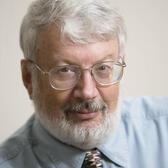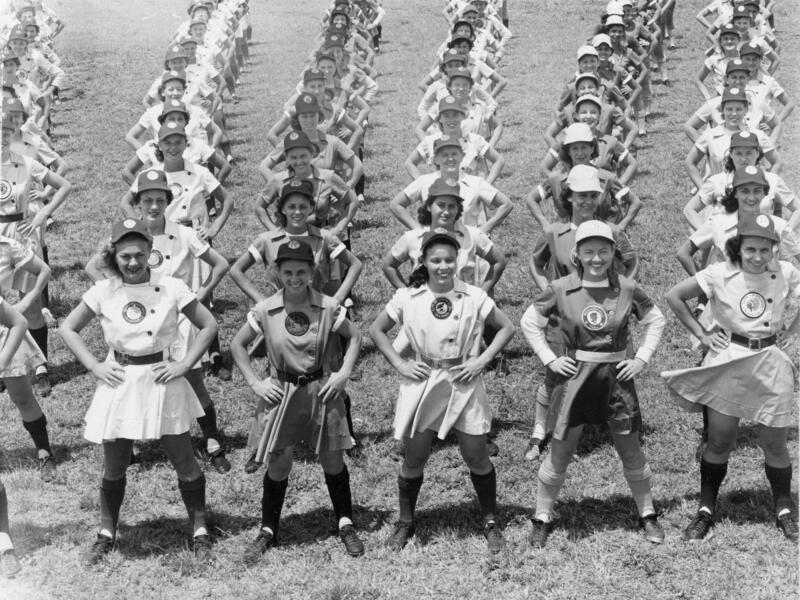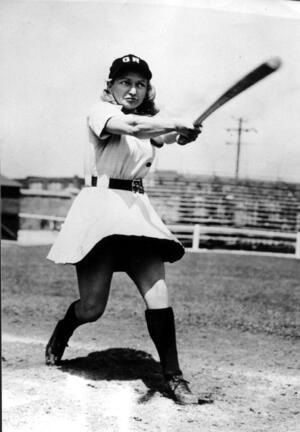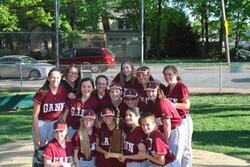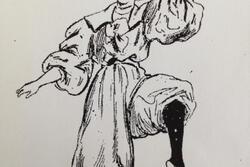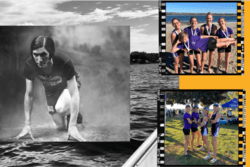Going to Bat for Women’s Equality
With baseball season well underway, now's a good time to consider the role of women, including Jewish women, in baseball. At both the professional and college levels, a growing number of women are now part of the sport—as players, coaches, sportswriters, broadcasters, and umpires.
But many people don’t realize that women have played baseball since the sport was invented in the mid-1800s—in all-women leagues and on teams with men, in amateur and professional leagues, with softballs and hardballs. Soon after the first women’s colleges were established in the 1860s, some of them—including Vassar, Smith, Wellesley, and Mount Holyoke—fielded baseball teams. In the early 1900s, Jewish settlement houses, like the Young Women's Hebrew Association (YWHA), encouraged girls to play baseball and sponsored teams.
Of course, female baseball players had to deal with sexism.“Baseball is war,” wrote Albert Spalding in America’s National Game, the first major history of the sport, published in 1911. He believed that as the “national pastime,” baseball should reflect America’s growing economic dynamism and military power on the world’s stage, which he associated with masculinity.
“A woman may take part in the grandstand, with applause for the brilliant play, with waving kerchief to the hero…loyal partisan of the home team, with smiles of derision for the umpire when he gives us the worst of it…But neither our wives, our sisters, our daughters, nor our sweethearts, may play Base Ball on the field…Baseball is too strenuous for womankind.”
Many women defied those stereotypes as players and as advocates. Jewish women were part of that challenge to the status quo, going to bat for women’s equality.
An important milestone for women in baseball came when Philip Wrigley, owner of the Chicago Cubs, founded the All-American Girls Professional Baseball League in 1943. He figured that baseball fans might buy tickets to see women play the game while many of their favorite major league stars were in the military during World War II. In its twelve years, over 600 players filled the league’s rosters. The AAGPBL was almost forgotten until 1992, when Penny Marshall’s film, A League of Their Own, became a smash hit.
At least three AAGPBL players were Jewish:
Thelma “Tiby” Eisen (1922-2014) grew up in Los Angeles and started playing semi-pro softball at age 14. During her AAGPBL career, from 1944 to 1952, she played outfield for four different teams. Her 674 stolen bases are second-best in league history and her 591 runs scored ranks third all-time. In 1946 she led the league in triples, stole 128 bases, and was selected for the All-Star team.
Eisen’s family didn’t believe that “nice Jewish girls” should play baseball. But after she played in a charity game for a Jewish hospital, “my name and picture were in every Jewish paper,” she recalled, and her family was bursting with pride.
After the AAGPBL disbanded, Eisen worked as an instrument calibrator for a firm that made medical devices and then worked for the telephone company. She also played softball for the Orange Lionettes, who won the Amateur Softball Association championship, and field hockey for the Shamrocks of the California Field Hockey League. She was also an outstanding golfer. Into her 80s, she gave youth baseball clinics in the Los Angeles area. In 1993, she helped establish the women's exhibit at the Baseball Hall of Fame in Cooperstown, and in 2004 she was inducted into the National Jewish Sports Hall of Fame and Museum.
Brooklyn-born Blanche Schachter (1923-2010) started playing baseball on her synagogue team. She graduated from Hunter College with a degree in physical education and excelled in tennis, basketball, and field hockey. (Hunter didn’t have a softball team, but she played in various leagues in the New York City area.) While working as a teacher, she also pitched, caught, and played third base for the Greenwold Jewells of the American Softball League, one of the best teams in the country at a time when women’s softball was popular. In 1945, in a game against a women’s army corps team, Schachter, who was ambidextrous, played one inning at every position. In the ninth inning, she took the mound as a right-handed pitcher, struck out the first two batters on six straight strikes, then switched to throwing left-handed and got the final batter out.
Schacter joined the AAGPBL’s Kenosha Comets in 1948 as a catcher. But she quickly injured her knee and played only nine games in the league. She returned to New York to work as a gym teacher, but also played with the Arthur Murray Girls in the semi-professional American Girls Baseball Conference. She also played guard with the Queensboro Starlets in the Metropolitan Girls Basketball League. After retiring from the New York school system, she moved to western Massachusetts and worked as a high school tennis coach.
Anita Foss (1921-2015) was truly a wandering Jew. She played in only 28 AAGPBL games over two seasons (1948 and 1949), but wore the uniforms of four teams—the Springfield Sallies, Muskegon Lassies, Grand Rapids Chicks, and Rockford Peaches—pitching and playing second base. (The league frequently moved players around to guarantee a competitive balance).
Foss started playing baseball with her four brothers at a young age. In high school, she participated in a wide variety of sports, was captain of the varsity softball team, and was a star on the Riverside Townies, the Rhode Island women’s champion softball team. She joined the AAGPBL after her husband was killed in World War II.
Soon after leaving the league, Foss moved to Santa Monica and worked for Douglas Aircraft. The company asked her to train a man for a supervisory job. She complained that she knew how to do the job and deserved to get it. “The next thing you know, I was in charge,” she recalled, becoming the first female supervisor in her department, responsible for over 30 employees.
She played in local semi-pro baseball and softball leagues and was also an avid golfer and bowler. In 2005, she earned the Woman of the Year Award from Santa Monica YMCA for her contributions to the community.
There have also been Jewish women who have advocated for girls and women in baseball. Sylvia Pressler (1934-2010), a hearing officer with the New Jersey Division on Civil Rights, ruled in 1972 that Little League had to allow girls to play. Her decision opened up Little League baseball to tens of thousands of girls in the past half century. Justine Siegal became the first female coach on a professional men's baseball team and the first on a major league team. As founder of Baseball For All, she’s been a trailblazer in training girls to play baseball, including a growing number now on rosters of otherwise all-male college teams and on women’s college teams.
A few Jewish women have ascended into the ranks of major league team executives. Jamie Luskin McCourt became the highest-ranking woman in Major League Baseball history as vice chair (2004), president (2005), and CEO (2009) of the Los Angeles Dodgers. Eve Rosenbaum, who played on the Harvard women’s softball team, is now the Baltimore Orioles’ assistant general manager for baseball operations.
Several Jewish women have reached the top of their profession as baseball writers and broadcasters. Jane Leavy’s best-selling 2002 biography, Sandy Koufax: A Lefty’s Legacy is considered one of the best baseball books of the past century. Suzyn Waldman was hired as the New York Yankees’ play-by-play announcer on a local TV station in 1993 and in 2005 became the first woman to do color commentary for the team on local radio. Four years later, she became the first woman to work a World Series game from the broadcast booth. Linda Cohn has been ESPN’s SportsCenter anchor since 1992, and Amelia Schimmel is the first female public-address announcer at the Oakland Athletics' Coliseum.
Since Congress passed Title IX in 1972, the number of women playing high school and college softball has skyrocketed, to over 362,000 and over 20,000, respectively. These numbers don’t include the growing number of women participating in college club sports, amateur, or professional leagues around the country.
Although more girls and women are now playing baseball—on all-women’s teams and predominantly male teams—the numbers have lagged far behind those for softball. Many colleges offer scholarships to women to play softball, but not baseball. There are professional women’s softball teams, but recent efforts to create pro baseball leagues for women have floundered. Like their counterparts, female Jewish athletes are steered toward tennis, basketball, soccer, swimming, and other sports, but stereotypes about women in baseball persist.

